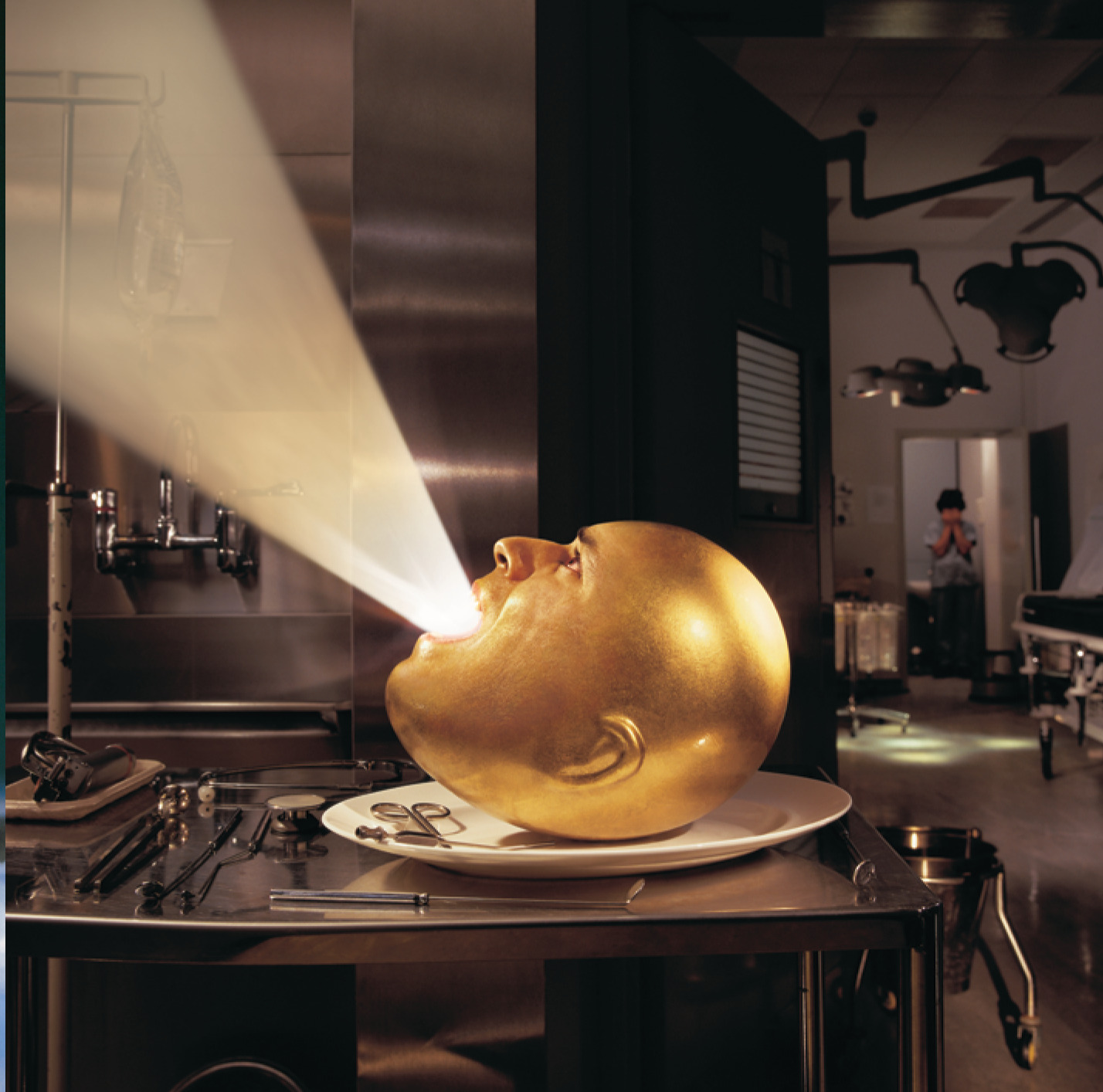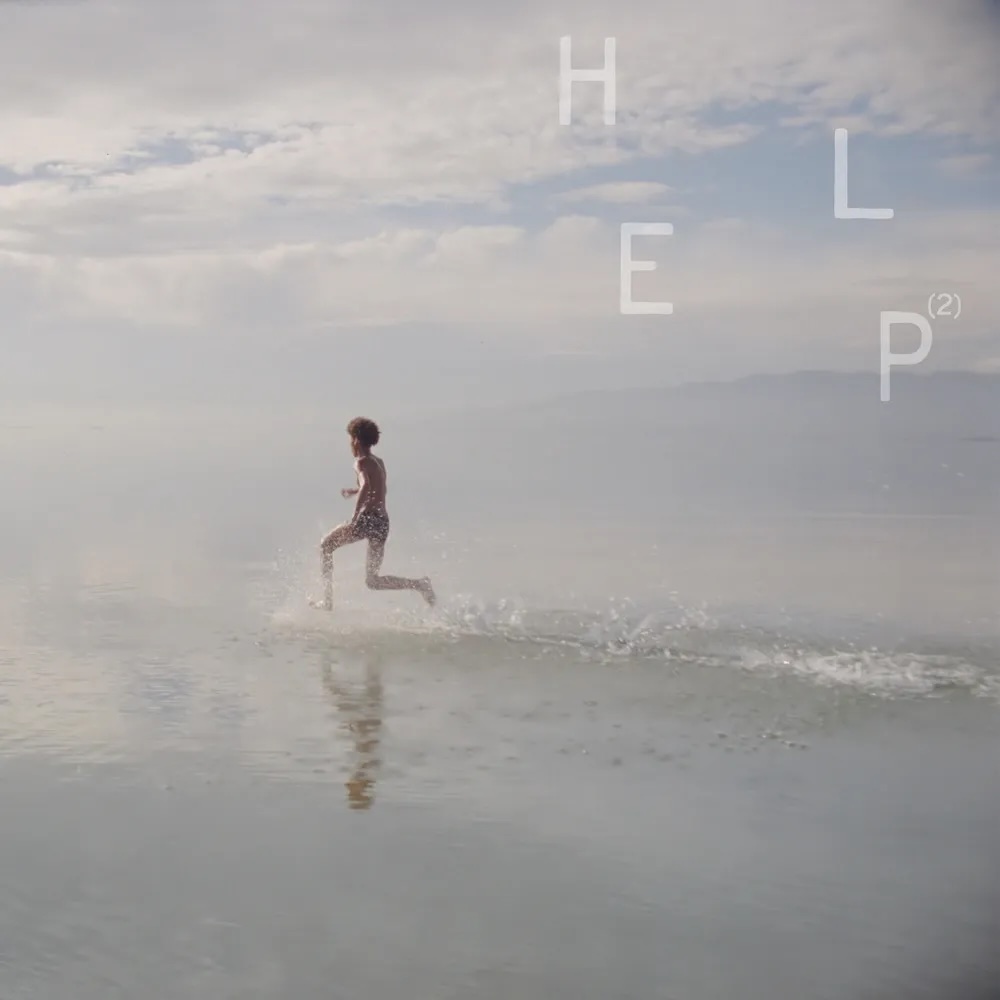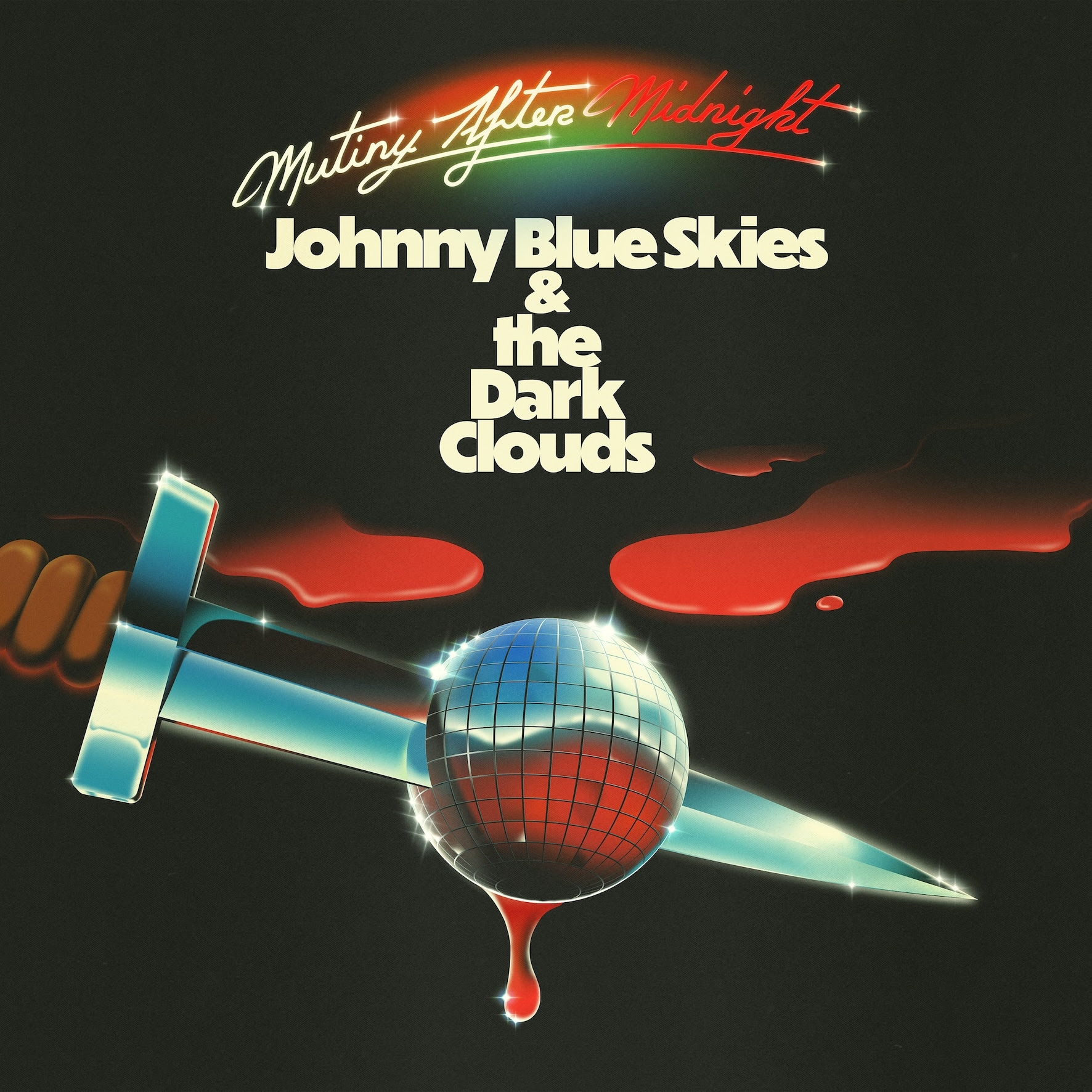- GSL/Universal/Strummer
- 2003
I came to At The Drive-In late. They were already broken up by the time I heard Relationship Of Command. I heard the name the Mars Volta comparatively early, though, because Cedric Bixler-Zavala was one of the guest vocalists on Rise Above: 24 Black Flag Songs To Benefit The West Memphis Three, a 2002 benefit album put together by Henry Rollins. His voice was a quavering, upper-register wail with an unhinged quality that reminded me of the Cramps' Lux Interior, and when he leapt all the way to a shriek I was fascinated. I wanted to hear more from this guy right away, and I decided that I needed to find out who the Mars Volta were.
Their first EP, the three-song Tremulant, had actually been released six months earlier, in April of that year; Rise Above came out in October. But the first Mars Volta record I heard was their full-length debut, De-Loused In The Comatorium, which came out on June 24, 2003, 20 years ago this Saturday. I bought the CD (at Best Buy) and was immediately enraptured. It's an incredible debut, the kind of artistic achievement very few bands have in them, and certainly a record the Mars Volta have never topped.
The core of the Mars Volta has always been Bixler-Zavala and guitarist Omar Rodríguez-López, the Donald Fagen and Walter Becker of manic screamo prog. Rodríguez-López in particular seems to view other musicians as tools he can use to achieve the sounds he's after; he once told me that he used to present musicians with their parts in the studio and insist that they record them as quickly as possible — "gun in your face" was the phrase he chose — to keep anyone from second-guessing ideas or challenging his vision. In their earliest days, though, much like Steely Dan, the Mars Volta were more of a band. The initial lineup was keyboardist Isaiah "Ikey" Owens and electronic sound manipulator Jeremy Ward, both of whom were in the duo's other project, the dubby De Facto, plus bassist Eva Gardner and drummer Jon Theodore. That was the lineup that recorded Tremulant with producer Alex Newport, formerly of the underrated UK sludge trio Fudge Tunnel, and went out on the road, including a string of dates opening for the Red Hot Chili Peppers. But Gardner had to drop out of the band mid-tour (her father died), and Ward died of a heroin overdose in May 2003, after De-Loused had been recorded.
The Mars Volta was signed to Universal by Gary Gersh, who had signed Nirvana and Sonic Youth in the early '90s and worked with Soundgarden, the Foo Fighters, and many other acts. They were paired up with Rick Rubin; Bixler-Zavala told the German zine Ox in a 2003 interview, "We had different people in mind and when we met him at his house it just clicked. We listened to our first record together, on an incredible system, really brutally loud, and then we talked endlessly about music and got along well…He's a really nice guy, very different from what I imagined. We knew from other people how he works, how 'his' records sound, so it was a good choice for us. But it is also clear to us that our album certainly shows another side of Rick Rubin."
The album was recorded in the same supposedly haunted mansion where the Red Hot Chili Peppers made Blood Sugar Sex Magik and Slipknot made Vol. 3: The Subliminal Verses. In an interview with Mix, Bixler-Zavala said, "We really don't go up to that certain room at the top where the bell tower is. There are doors leading to the attic. I keep closing them, and they are always open when I go back. Weird."
De-Loused is based on the life and death of Julio Venegas, an artist Bixler-Zavala and Rodríguez-López knew in El Paso, where they grew up. Rodríguez-López told the LA Weekly, "Julio was an artist in every sense of the word. He was an extreme person. He lived every day getting himself into situations and always getting lost, so he had scars all over his body that let you know the places where he had been. When his mother died, he tried to kill himself. He shot up a bunch of morphine, but he didn't succeed; he went into a coma."
After awakening from the coma, Venegas killed himself one day in 1996, leaping from the Mesa Street overpass onto Interstate 10 in El Paso during afternoon rush-hour traffic. Bixler-Zavala and Rodríguez-López had previously paid much more explicit lyrical tribute to him on the At The Drive-In song "Ebroglio," from their album Acrobatic Tenement. De-Loused, on the other hand, is an elaborate metaphorical journey — the album's songs tell the first-person story of Cerpin Taxt, a man who injects morphine and rat poison and goes into a coma, during which he battles his own dark side.
If you didn't read interviews with the two, though, you might never know what the fuck their songs were about. Bixler-Zavala's lyrics are dense, imagistic, psychedelic gibberish, shrieked with wild intensity. What makes them effective is how he sings, not what he sings. His voice cuts through the roar of the band, and both the verses and choruses have hooks. The phrases he sings on tracks like "Intertiatic ESP," "Roulette Dares (The Haunt Of)" and "Cicatriz ESP," no matter how obscure their meaning may be, stick in your mind and become earworms. Depending on what you think of albums like Amputechture and The Bedlam In Goliath, you may argue that they lost this ability later on, but in their first creative rush the Mars Volta knew how to write songs.
What's really impressive about this album, of course, is the complexity of the music. Rodríguez-López is a wild guitarist, half Carlos Santana and half Wayne Kramer, and the rest of the ensemble — Owens, Theodore, Ward, and especially Flea, who played bass on the sessions following Eva Gardner's departure — create a layered and constantly shifting collective sound that's part Latin rock, part screamo, part punk and surprisingly…dubby. I don't think the dub element of the Mars Volta's early music is remarked upon enough. The entire first half of the nearly 13-minute "Cicatriz ESP" is deeply dubbed out, with the guitar and organ lines and even the drums soaked in reverb and echo, and Flea's bass pulsing steadily at the center of it all like a cosmic heartbeat; then for a long stretch in the track's second half, we're in a psychedelic haze like the atmospheric parts of Pink Floyd's "One Of These Days" stretched out to five minutes, before the full band fades back in, roaring through a Santana-inspired Latin rock fusion jam. But the hooks were always present. De-Loused In The Comatorium is art-rock, but both halves of that phrase are of equal importance. There are an amazing number of fist-pumping, "Fuck yeah!" moments in its long, sprawling tracks, as well as some real tenderness on the mostly acoustic "Televators."
For the record, I don't know how much of the credit belongs to Rick Rubin. My guess would be that Rodríguez-López and engineer Dave Schiffman did most of the actual work. Previewing the album, the guitarist told Spin, "We worked with Ross Robinson in At The Drive-In, and his philosophy was to play things over and over again, which was good at the time because I was still trying to figure out who I was. But now I realize that a lot of the mistakes and inconsistencies are part of who I am. For this record, we're trying to remember that it doesn't have to be perfect." But if there are mistakes, I can't hear them. The music has the precision and compositional wildness of Yes circa Relayer, with the explosive energy of Fugazi. (Go listen to the riff right after Bixler-Zavala sings "Trans-oceanic depths in this earth, in this cenotaph" on "Drunkship Of Lanterns.") And while some of the sudden segues and edits can throw you off on first listen, they soon become integral parts of the compositions and you realize that whatever the tape slice or Pro Tools edit took away is probably best forgotten. Besides, they're already blasting down the highway, so you better just catch up and hang on.
"I like the term 'progressive' in the dictionary sense, which means to move forward," Bixler-Zavala told the Chicago Tribune. "We're not trying to revive Genesis, and I'm not pretending to be Peter Gabriel dressed as a flower singing about goblins. But I'm also aware we're living in a time where everything that's being hailed as the next big thing is straight-up retro. In New York, everyone wants to be Gang Of Four, or PIL, or Television. No one wants to mix it up and make their own thing. I grew up with punk rockers hating prog rock as a style full of dinosaur ideas. But I'm a product of 30 years down the line, and we're trying to bridge the gap and make both of them a weapon."
On De-Loused In The Comatorium, they did exactly that, creating a version of prog that had the headlong fury and love of raw noise found in the best hardcore. It's their best album by far, precisely because of that balance of ecstasy and groundedness. Twenty years later, it's still a head-spinning thrill ride, and some of Cedric Bixler-Zavala's screeches — "Nooooowwwww I'm looooost"; "Exoskeletal junction at the railroad delayed"; "Bayonet trials, rust propellers await" — still echo through my head in the shower. Psychedelic Latin prog-punk with hooks for days: There's really no other album like De-Loused In The Comatorium.
We rely on reader subscriptions to deliver articles like the one you're reading. Become a member and help support independent media!






